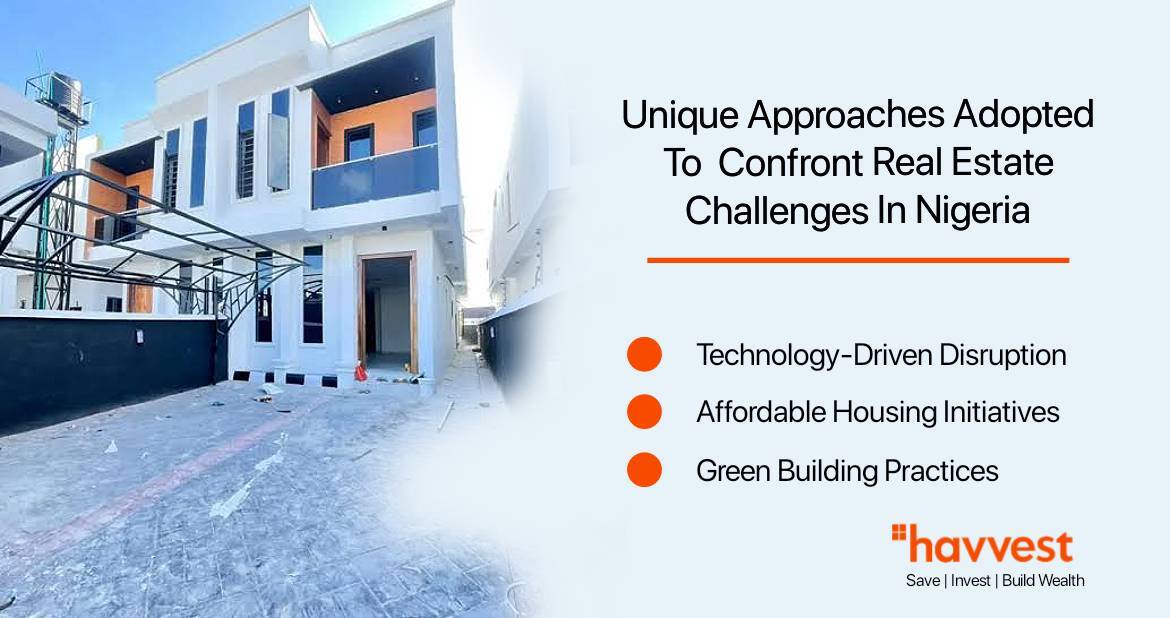The real estate sector in Nigeria faces numerous challenges. These challenges may range from inadequate housing supply, limited access to financing, marketing transparency, legal issues and regulatory framework. To overcome these hurdles, innovative solutions are emerging, leveraging technology, sustainable practices, and collaborative efforts to revolutionise the Nigerian real estate landscape.
In this blog post, we will explore some unique and exciting approaches you can use to confront real estate challenges in Nigeria. These approaches prove to provide comprehensive solutions involving fostering efficiency, inclusivity, and vitality.

They include:
1. Technology-Driven Disruption:
Technology is playing a transformative role in the Nigerian real estate sector, revolutionising traditional practices and creating new opportunities. One such innovation is the rise of prop-tech companies that leverage digital platforms and data analytics to streamline property transactions, improve market transparency, and enhance customer experiences. These platforms offer virtual property tours, online property listings, and facilitate secure digital transactions, simplifying the buying and renting processes for both developers and consumers.
Furthermore, the utilisation of Building Information Modeling (BIM) technology is gaining traction, allowing real estate developers to create 3D models of buildings and simulate construction processes. BIM improves project coordination, reduces costs, and minimises errors during construction, resulting in efficient and sustainable developments.
2. Affordable Housing Projects:
Addressing the housing deficit is a critical challenge in Nigeria, where millions of people lack access to decent and affordable housing. To combat this issue, stakeholders are implementing innovative approaches to provide affordable housing solutions.
One of such initiative involves utilising prefabricated construction techniques, where developers manufacture building components off-site and assemble them on-site. This approach reduces construction time, costs, and waste while maintaining quality standards. Additionally, public-private partnerships (PPPs) are being formed to develop affordable housing projects, leveraging the expertise and resources of both sectors to create sustainable and inclusive communities.
3. Green Building Practices:
Sustainable and environmentally conscious construction practices are gaining prominence in Nigeria’s real estate sector. Developers are incorporating green building principles to reduce energy consumption, minimise waste, and enhance the overall environmental performance of buildings.
Developers are incorporating innovative solutions such as solar power integration, rainwater harvesting systems, and energy-efficient designs into new developments.
These innovative approaches not only address current challenges but also pave the way for sustainable and inclusive development. This ensures that all Nigerians can ultimately reap the benefits of urbanisation. As Nigeria continues to embrace innovation, the future of real estate holds immense potential for growth, economic development, and improved living standards.
Love to see more updates like this. Havvest provides mind-blowing information and insights that cater to the needs of aspiring real estate investors and entrepreneurs. Therefore, equipping you with the knowledge and tools necessary to embark on this successful journey is our priority. Stayed tuned for more!




